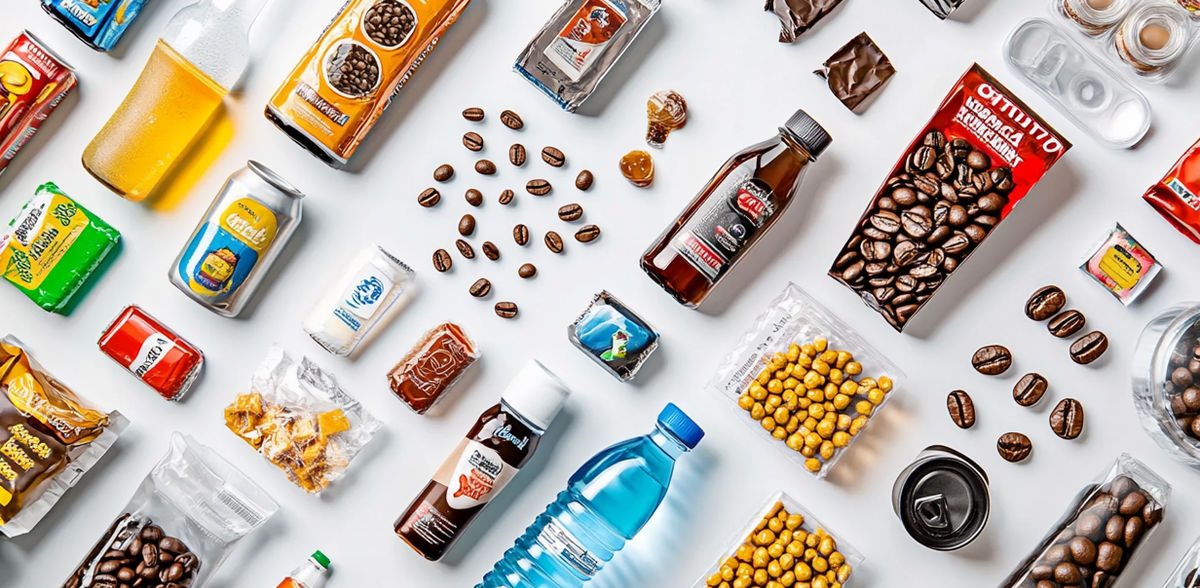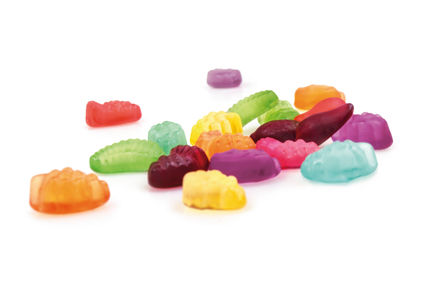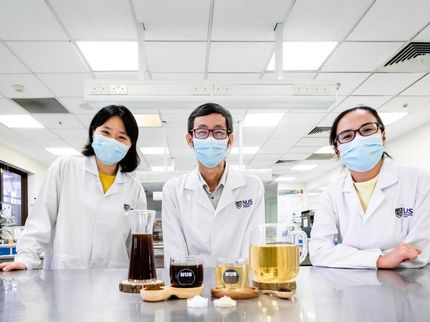From water to chewing gum: more and more products with added caffeine
Online study by the NRW consumer advice center shows that the caffeine content is often not apparent at first glance
Advertisement
Whether at work or during sport: caffeine is known as a stimulant and is said to increase the performance of body and mind. The stimulating effect sets in 15 to 30 minutes after ingestion and can last for several hours. Today, caffeine is being added to more and more products, both in natural and synthetic form. It is widely advertised in the sports, gaming and party scene, often aimed specifically at teenagers and young adults. The NRW consumer advice center has checked the claims of 49 products and warns against careless consumption.
The variety of products with caffeine is enormous, especially in online stores. Whether in the form of guarana, matcha or synthetic caffeine - the stimulant can now also be found in foods where you wouldn't expect to find it. A few years ago, you had to drink three cups of coffee to get your personal dose of caffeine, but today you can simply take a caffeine chewing gum, a caffeine bar or a caffeine water. The NRW consumer advice center takes a critical view of this: "We checked the information and warnings on 49 products in a random market sample," says Antonia Brandstädter, food expert at the NRW consumer advice center. "If there is caffeine in sweets or sweetened drinks, this can greatly increase caffeine consumption in addition to the harmful amount of sugar and become a health problem."
Some sweets contain four times as much caffeine as others
Caffeine products range from tea, soft drinks or cocoa to dietary supplements. And the caffeine content of the various products often varies greatly. "This makes it difficult to keep track of the total amount of caffeine consumed," explains Antonia Brandstädter. There are chewing gums with 30, but also with 60 milligrams of caffeine per chewing gum, i.e. double the amount. A caffeine bar can contain between 56 and 114 milligrams of caffeine. The caffeine content of sweets and fruit gums varies even further - the sample included products with between ten and 40 milligrams of caffeine per sweet or fruit gum. "In the case of caffeine powder, the correct dosage can already fail due to the correct measurement of the recommended individual dose. Quantities such as 200 milligrams are not measurable for most household scales, and measuring tip specifications are dangerously imprecise."
The labeling regulations are inadequate
"According to the law, products containing caffeine must be labeled accordingly," says the nutrition expert. In the case of drinks, the caffeine content must be indicated from a content of 150 milligrams of caffeine per liter (in mg per 100 g/ml) and a warning must be attached that there is an increased caffeine content and that the food is not recommended for children and pregnant or breastfeeding women. For solid foods with added caffeine, the caffeine content and warning must always be stated. "In stationary retail, this information is often only found on the back of the packaging and is visually quite discreet. Consumers have to actively look for it," criticizes Brandstädter. Above all, however, this information is omitted if the official product name refers to "tea" or "coffee" and the drinks are based on coffee, tea or coffee or tea extract. This is because these products are exempt from caffeine labeling. For example, iced tea, which in many cases contains caffeine, does not have to be labeled with a caffeine content. "This can increase the amount of caffeine unnoticed, as many people don't expect caffeine here." The current labeling regulation is therefore not sufficient from the point of view of the NRW consumer advice center. What's more, the caffeine content is stated per 100 g/ml, but the packaging sizes often fall short of or exceed this amount. "You then have to do the maths to get an overview of the amount of caffeine consumed, which I'm sure hardly anyone does," criticizes Brandstädter.
Numerous risks associated with too much caffeine
Consuming caffeine in moderation is harmless. However, an overdose can have negative effects on health. It does not matter whether it is natural or synthetic caffeine. The consequences of an overdose range from nervousness and poor concentration to nausea, tremors, insomnia and high blood pressure. In the worst case, an acute overdose can even lead to death. The European Food Safety Authority (EFSA) has therefore set maximum levels for caffeine intake. The maximum recommended single dose for healthy adults is 200 milligrams of caffeine and the maximum daily amount is 400 milligrams. However, depending on the product formulation, an energy drink and some caffeine fruit gums may already exceed the maximum single dose. Two coffees, a mate drink and a caffeine bar exceed the maximum daily amount. "For adolescents, the recommended daily dose is lower at three milligrams of caffeine per kilogram of body weight. To avoid overdosing through carelessness, we therefore advise keeping a close eye on the caffeine content," says Brandstädter.
Note: This article has been translated using a computer system without human intervention. LUMITOS offers these automatic translations to present a wider range of current news. Since this article has been translated with automatic translation, it is possible that it contains errors in vocabulary, syntax or grammar. The original article in German can be found here.































































